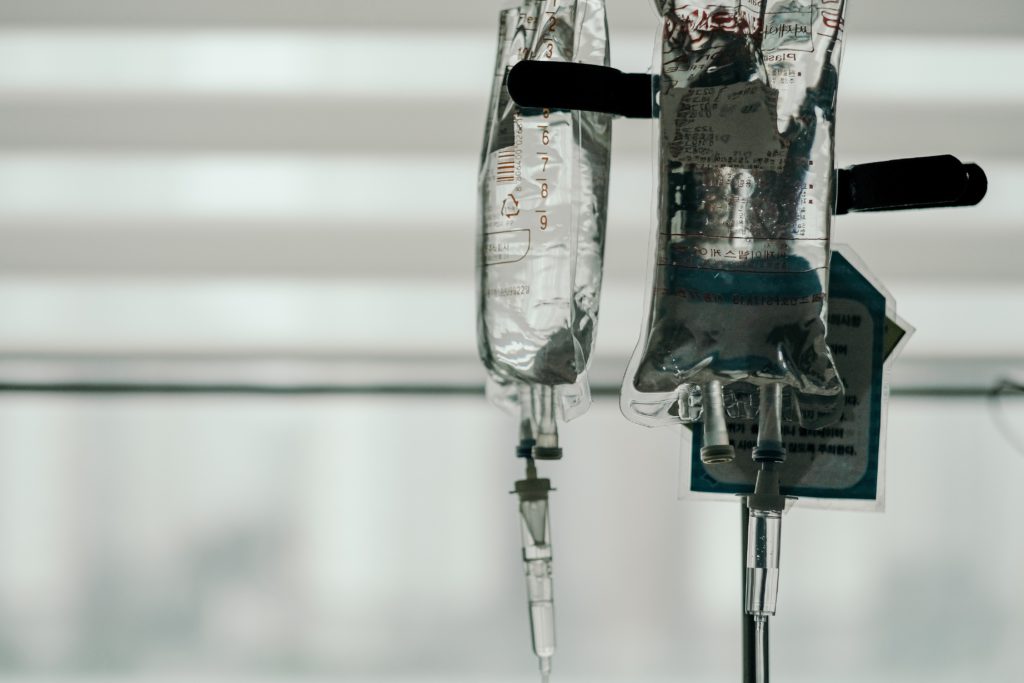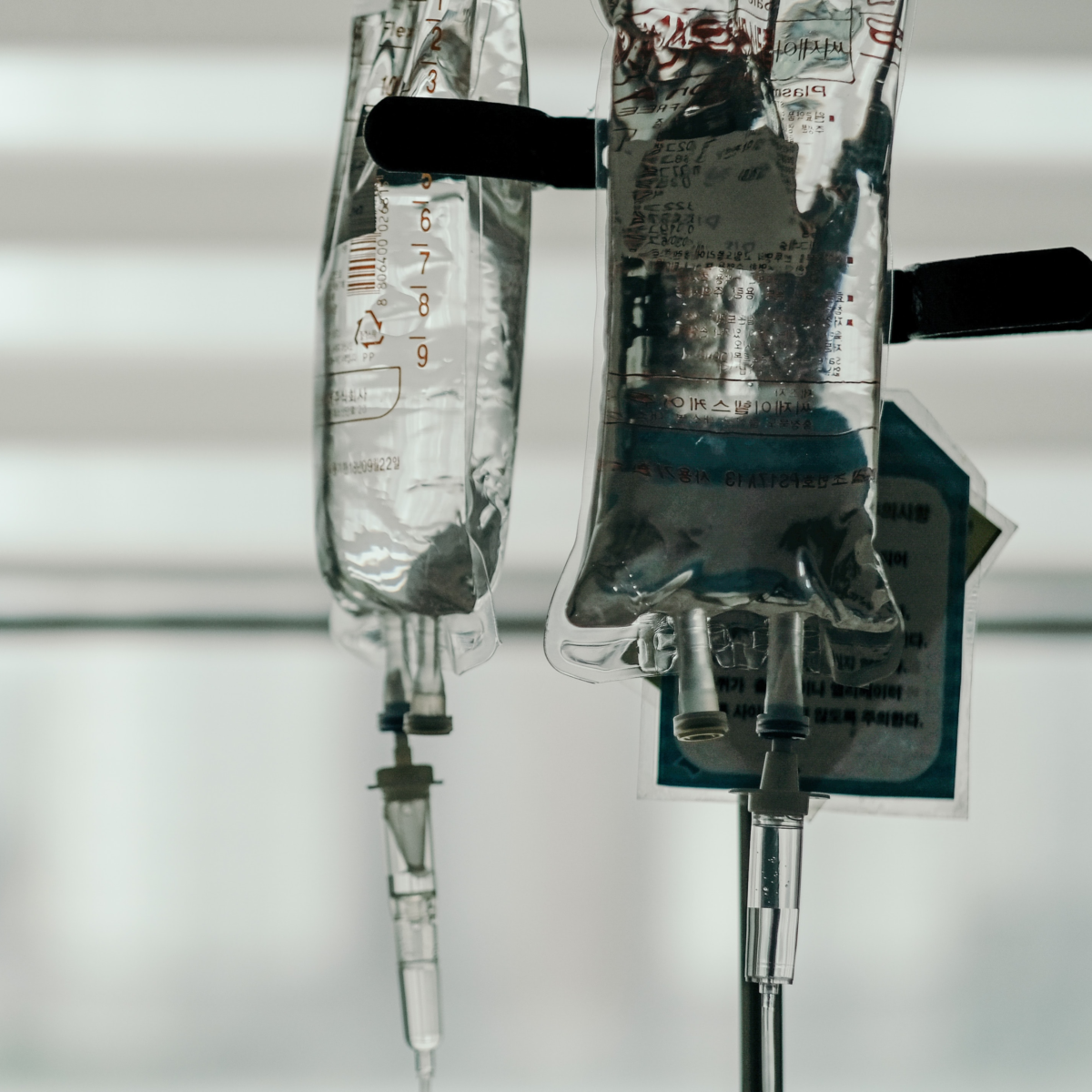Is frequent diarrhea a sign of cancer?
Cancer-related causes of diarrhea and how to cope

Diarrhea is an unfortunate and uncomfortable illness that can affect anyone. If you’re lucky enough to be unfamiliar with it, diarrhea involves frequent, loose, or watery bowel movements.
Diarrhea is sometimes a side effect of certain cancer treatments, and it can also be a sign of a more serious problem. Diarrhea can even be a sign of cancer. Learn more about this unpleasant symptom and what you can do about it.
What is diarrhea?
Diarrhea is a condition involving loose, watery, or frequent bowel movements. Diarrhea can affect anyone from infants to older adults, and the causes can vary wildly. Mild diarrhea is generally not serious, but severe or prolonged diarrhea can lead to complications like dehydration, which happens when the body loses too much water.
What causes diarrhea?
For most people, diarrhea is caused by any number of benign or more serious issues, including:
- Bacterial infections
- Celiac disease
- Food or water contamination
- Food allergies
- Inflammatory bowel disease (IBD) or irritable bowel syndrome (IBS)
- Lactose intolerance
- Viral infections such as the rotavirus or COVID-19
Certain medications, including some chemotherapy agents, can cause diarrhea as well.
Is diarrhea a sign of cancer?
Diarrhea can be a sign of cancer in rare instances. For most people diarrhea can be treated at home or with the assistance of medication. However, frequent or persistent diarrhea can be a sign of:
- Colorectal cancer
- Lymphoma
- Medullary carcinoma of the thyroid
- Neuroendocrine tumors
- Pancreatic cancer
If cancer is the cause of diarrhea, it’s likely that you would experience other symptoms as well. For example, someone with pancreatic cancer might also experience weight loss and jaundice.
Lani S. had a feeling something wasn’t right.
It was right around Thanksgiving. I was staying with my aunt. We went to a pub, and I had to go to the bathroom. It was really urgent. I vomited profusely and had diarrhea. I blacked out.
Lani S.
Read Lani’s story


Rachel B. said it was when she saw blood in her stool that it was time to see a doctor.
I was nauseous and bloated all the time. My stomach just felt really off. The straw that broke the camel’s back was finding blood in my stool.
Grades of diarrhea
The doctors at the National Cancer Institute developed a grade system for determining how severe your diarrhea is. The grade system is relative to your baseline bowel movements.
Although watery stools are a hallmark of diarrhea, it can also be defined as an increased frequency of stools. Treatment is based on the grade severity.
- Grade 1. Pass up to 4 stools a day above your baseline
- Grade 2. Pass 4 to 6 stools a day above your baseline.
- Grade 3. Pass 7+ stools a day above your baseline. This may require in-clinic treatment.
- Grade 4. Grade 4 is life-threatening and requires immediate medical treatment.
What causes diarrhea during cancer treatment?
Diarrhea is a cancer treatment side effect that affects some patients. Some of the main causes of diarrhea during cancer treatment include:
- Chemotherapy, including Vinblastine, TCHP therapy, Taxol, Bendamustine,
- Immunotherapy, including Keytruda
- Targeted therapy
- Radiation therapy
- Bowel surgery
- Stem cell transplant
Cancer patients are often more susceptible to infections, including ones that cause diarrhea.
Dr. Kenneth Biehl is a radiation oncologist who explains that radiation therapy to the rectal or bowel area can result in diarrhea, among other side effects.
In the rectum you can have some diarrhea, some urgency with your bowel movements. With the bladder you can have some urgency with your bladder, feeling like you have to get to the bathroom right away. Sometimes you can have some burning with urination.


Monica H. was going through Adriamycin and Cytoxan treatment for breast cancer.
I had a lot of nausea and a lot of diarrhea.
The Darzalex made me feel extremely wiped out for a day or two after, but other than that and some diarrhea, it was okay. I tolerated it pretty well.
Jude A.

If you’re taking chemotherapy in pill form and you experience diarrhea, please speak to your oncologist. They will be able to determine if you should continue your course of chemotherapy pills.
When should I call a doctor?
Mild cases of diarrhea often resolve on their own. Some cases require a little more assistance through dietary changes or over-the-counter medications. However, if you experience any of the following, you should speak to a healthcare professional:
- Diarrhea that lasts more than two days
- Black or bloody stools
- Fever above 100.5 degrees Fahrenheit
- Severe abdominal or rectal pain
- Weight loss due to diarrhea
- Dizziness
- Inability to control bowel movements
If diarrhea persists and goes untreated, the body can quickly become dehydrated and lead to electrolyte imbalances. This could lead to the need for IV fluids. Prescription medication may be required in certain instances.
Treating diarrhea at home
Luckily, there are ways to treat mild diarrhea at home, starting with what you eat.
- Stick to clear liquids. Switch to clear liquids, such as water, clear broth, and clear juices. Milk and other dairy products could aggravate. You may need to drink 8-12 cups of liquids a day.
- Low-fiber foods. Lows low in fiber will be gentler on your bowels. Try rice, bananas, and applesauce.
- Small meals. Eat 5-6 small meals a day and include plenty of fluids.
- Avoid irritating foods. Dairy products, spicy foods, alochol, caffeine, and highly acidic food and drink can irritate the digestive tract.
- Probiotics. Probiotics are beneficial bacteria that aid normal digestion. Bone marrow transplant patients should check with their doctor first.
Taking care of your skin
Frequent bowel movements feel uncomfortable and can irritate the sensitive skin in the anal area. Use warm water or wipe with baby wipes/bathroom wipes. Gently pat dry.
Petroleum jelly and similar ointments applied to the area can repel water and reduce skin irritation.
Can medications help diarrhea?
Dietary changes can help in mild cases, but you may require medication in more severe cases. If you are already undergoing cancer treatment, don’t take over-the-counter drugs without checking with your doctor first. There may be dangerous interactions with chemotherapy drugs.
Opioids and anti-secretory agents are often prescribed for cancer patients with more severe diarrhea, but your doctor will determine the best course of treatment.
Questions to ask your health care team
If you’re concerned about diarrhea, it’s important to ask the right questions. It can be an embarrassing subject, but your health care team can’t help you if you don’t communicate.
- Will any of my cancer treatment medications cause diarrhea?
- Does the cancer itself cause diarrhea?
- What should I do if I experience a change in bowel movements?
- Should I keep track of bowel movements during cancer treatment?
Want to share your story?
Share your story with us!
